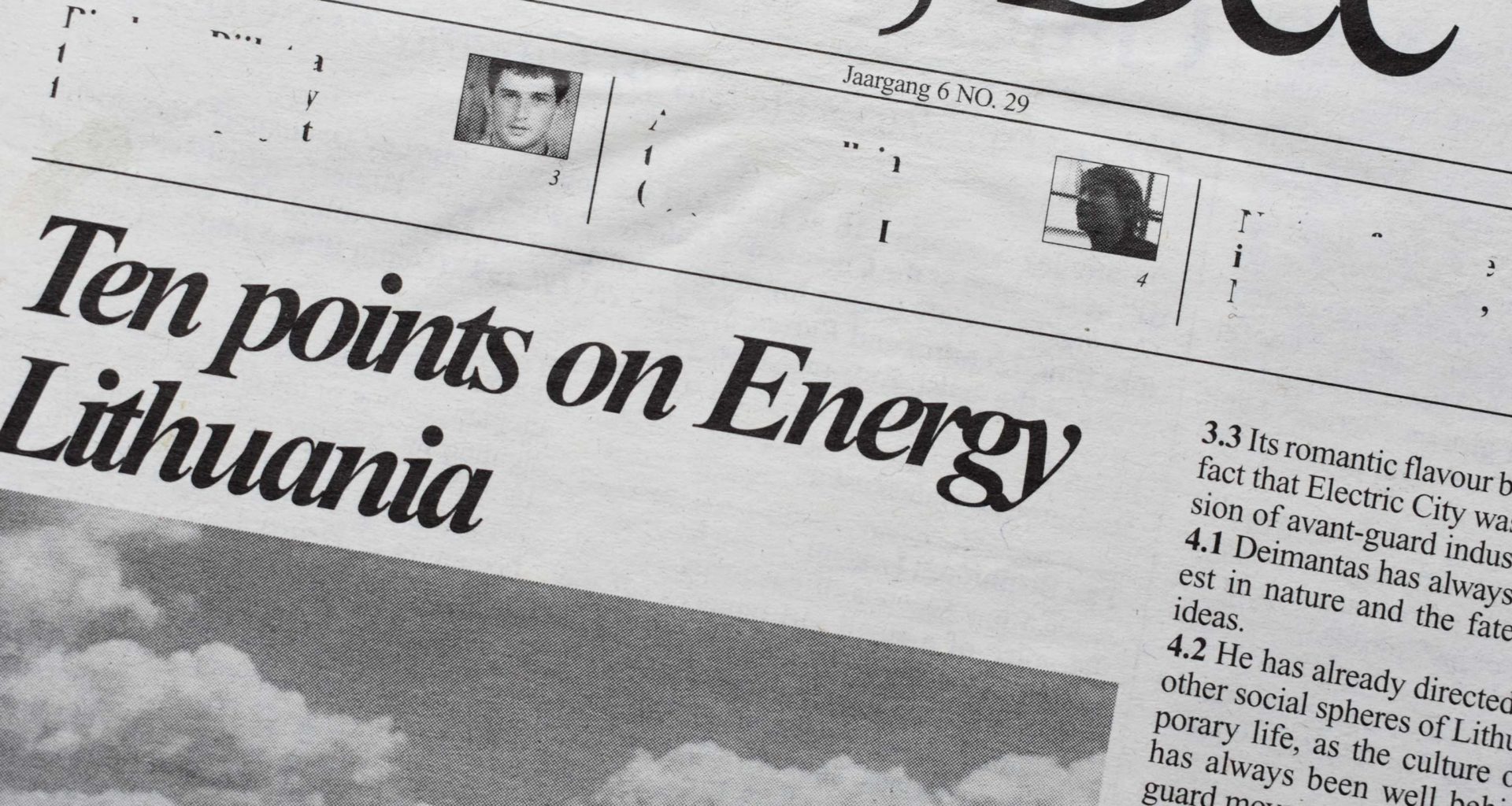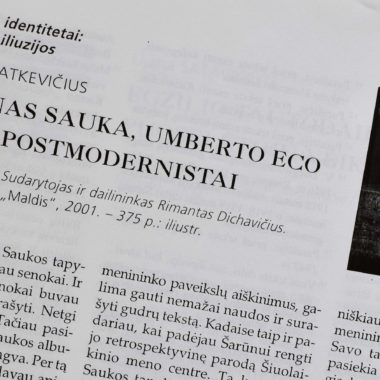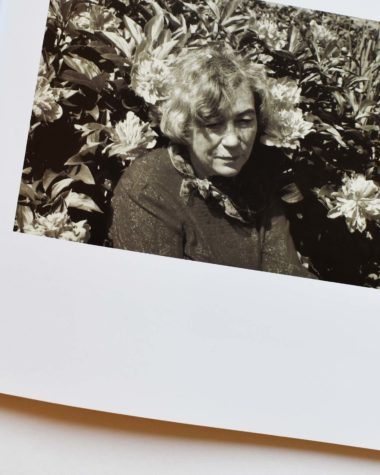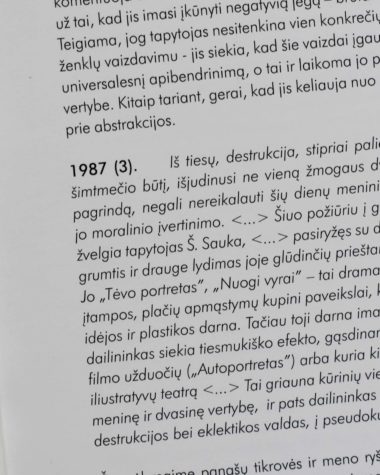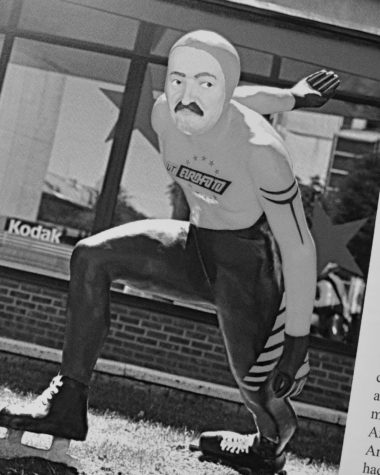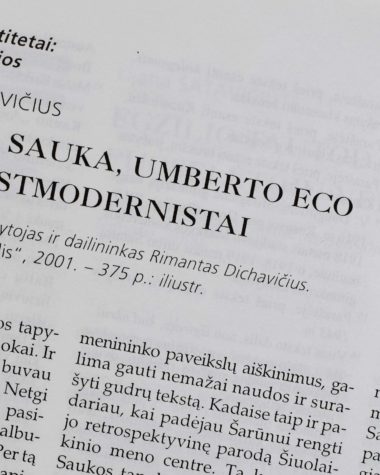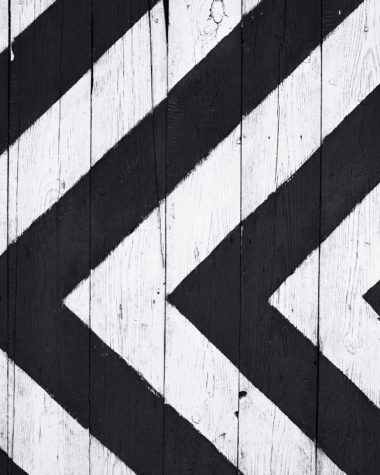1.1
Deimantas Narkevičius is one of the leading Lithuanian artists of the younger generation.
1.2
Younger generation in the Lithuanian art embraces artists who have started their careers from the very end of the fall of Soviet Union (around 1988-1990) till now.
1.3
As most of his colleagues, he studied one of the classical techniques of art at the school and only later turned to new media.
2.1
Energy Lithuania is his last work on 8 mm film created in 2000.
2.2
It was one of the works shown in the Lithuanian Pavilion at the 49th Venice Biennial this year.
2.3
It makes reference to the other 5 film related works Deimantas has created since 1997.
3.1
Energy Lithuania tells the story of Elektrėnai (Electric City in English translation), the Lithuanian town that was built to maintain power station, constructed in the area at the end of 60s.
3.2
Elektrėnai has always been the symbol of Soviet industrial development in Lithuania. As any symbol of this kind it has always provoked enthusiasm and romantic visions.
3.3
Its romantic flavour bears witness to the fact that Electric City once was the expression of avant-guard industrial thinking.
4.1
Deimantas has always expressed interest in nature and the fate of avant-guard ideas.
4.2
He has already directed his interests in other social spheres of Lithuanian contemporary life, as culture of this country has always been well behind of any avant-guard movements.
4.3
Contemporary perception of modern history naturally has become one of his main points of interest.
5.1
Totalitarian history still is one of the hottest issues in any post-communist state.
5.2
Prevailing attitudes towards not so distant past is blind negation of anything that evokes totalitarian memories. The dominant theoretical attitude is the division of the world into black and white, which is clear left over of totalitarian thinking from the Cold War era.
5.3
The totalitarian past of post-communist countries is erroneously opposed to the democratic past and present of post-Western world.
6.1
Deimantas in his films performs actions opposite to the mechanism that produces ideological stereotypes.
6.2
Social stereotypes emerge not only because of the lack of historical knowledge, but also by eliminating personal experience of history.
6.3
Any governing body loves to use social stereotypes to rule the masses, although it might seem that this is more typical to totalitarian systems.
7.1
Both Deimantas and heroes of his films present their personal point of view.
7.2
Subjective dimension allows the artist not only to present his position, but also to avoid another imperative: the stereotypical social discourse – to relate universal and indisputable Truth.
7.3
His films also give the alternative and effective vision of history of post-communist societies.
8.1
It would be wrong to define his territory of interests with only post-communist world, although his prime interest is social discourse of his closest environment.
8.2
A lot of social stereotypes were created in both the post-East and the post-West after the fall of Berlin Wall.
8.3
These stereotypes are of the same nature (see points 5.2-5.3)
9.1
The world is not divided the same way as it was ten years ago.
9.2
The world is divided, but the main principles of this division are still unknown to us.
9.3
We all live in one space, tormented by the recent memories of social brainwashing.
10.1
Energy Lithuania is a tender metaphor for disguised cruelties any citizen of Western Hemisphere could relate to.
10.2
Energy Lithuania is an invitation to remember and learn to face what we would rather forget.
10.3
Energy Lithuania is one of the possible methods to cure secret wounds that we have inflicted to ourselves.
>>
Skelbta: Newspaper Galierie Jan Mot, Brussels, 2001, November-December, No. 29
